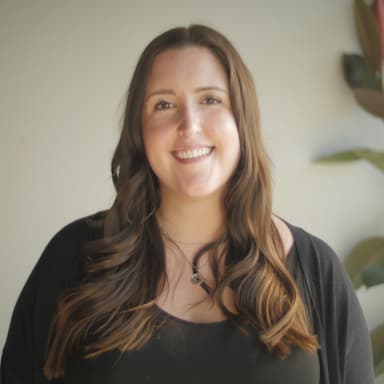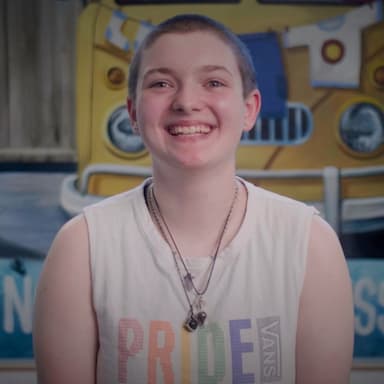Storytelling is such an important form of advocacy because we don’t have to feel alone. True, real raw stories are so incredibly valuable for people who don't have the opportunity to share.
Storytelling has an incredible ability to break down stigma. Stories shared by people with or without mental illness can help reduce stigma by helping others not to feel alone. When we share our personal experiences with disability, mental health, gender, sexuality, our own journey or supporting someone else’s journey, we allow others to get a glimpse into our experiences to learn from and possibly inspire change.
When you share your story, it is also important to recognize your own boundaries. Be honest and truthful about your story and your experiences, and try to focus on how you overcame challenges so others can learn and be inspired. You want to ensure you are respecting your own journey and experiences without going into details that may trigger you. When you plan on sharing your story, it can be helpful to write it down first. Put it away for a few days and come back to it. If there is anything you don’t feel 100% comfortable with, there’s a good chance you might not feel comfortable with it on the day you are sharing it, so it’s best to remove it.
Inspiring positive change for mental well-being through storytelling is to use everything that you've gone through and that has been such a struggle and a journey for good. It's as simple as just being honest about who you are and what your experience has been.
Actionable Insights
Anyone can talk about mental health. Whether you have a mental health condition or not, sharing your experience is beneficial. Hearing various perspectives enables us all to feel motivated and connected.
Treat yourself with self-care and compassion, and know that you may be okay with sharing your story today and you may not be comfortable tomorrow. If you choose to not share your story on the day of, know that you don't have to—you need to take care of yourself first and foremost.
Know your audience and recognize they may be triggered by topics covered in your story. Acknowledge any triggering topics up front and provide links to mental health resources and support options so that anyone who might need them can access support without having to ask.
Tools & Resources
- Speaker Support - Safe Space Essentials, through Balancing Our Minds [PDF]
- How to tell a story safely, through Jack.org [PDF]
- Tip Sheet: Sharing your story safely, through Mental Health Commission of Canada [PDF]

Laurie (she/her)
AbbotsfordLaurie (she/her) is a recent graduate of the University of British Columbia's Masters of Health Administration program and resides on unceded Stó:lō (staw-low) territory in the Fraser Valley. She uses her personal story to provide hope and tools for wellness to others through social media (@laurieanned), the Bold Beautiful Borderline podcast, and The Super Feelers Club, a virtual low barrier peer support group program for individuals who live with intense emotions. Laurie uses her passion and life experiences to improve the health system and was a host of the Balancing Our Minds Community Summit in Surrey from 2017 to 2019.

Noia (he/they)
SurreyNoia (he/they) is a Grade 11 student that resides on the ancestral and traditional territories of the sq̓əc̓iy̓aɁɬ təməxʷ (Katzie), Qw'?ntl'en (Kwantlen), and SEMYOME (Semiahmoo) First Nations, also known as Surrey, BC, Canada. They started advocating for mental health at a young age by creating and leading a youth empowerment program in Grade 5. Noia also volunteered with his school's Inclusion program, working to bridge the gap between students with hearing impairments and hearing students. During the past few years, Noia has become a diversity team leader and a leader within the GSA (gender, sexuality alliance) community. Community advocacy continues to remain important as Noia works with non-profit Indigenous organizations to help with youth empowerment and cultural reclamation.